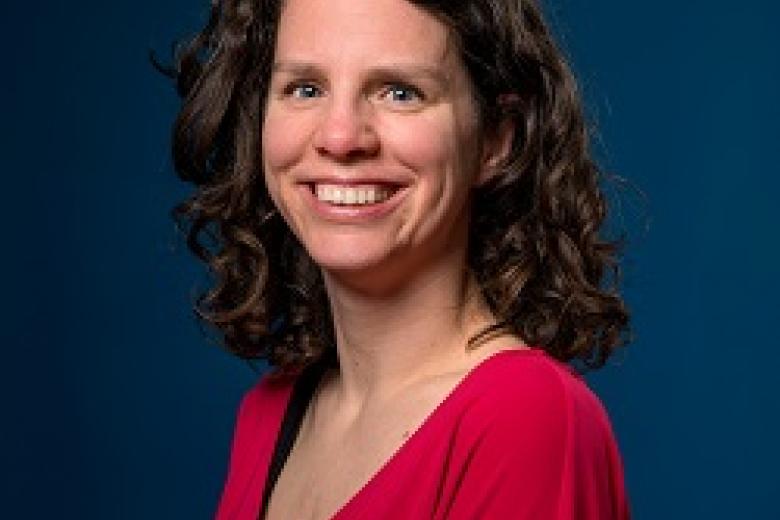Six Vidi grants for talented UM researchers
NWO has awarded a Vidi grant worth 800.000 euro to six experienced UM researchers a Vidi grant worth 800,000 euros: prof. dr. Pamela Habibovic (FHML/MERLN), dr. Joost Lumens (FHML), dr. Ann Meulders (FPN), dr. Benedikt Poser (FPN), dr. Vera Schrauwen-Hinderling (FHML), and dr. Stephan Smeekes (SBE). The grant enables them to develop their own innovative line of research and set up their own research group. Vidi grants enable researchers to do research for five years. NWO awards Vidi grants every year. A total of 590 researchers submitted an admissible research project for funding during this Vidi funding round. Eighty-nine of these have now received grants.
The six UM laureates will work on the following research projects:
Prof. Dr. Pamela Habibovic, FHML/MERLN: High-tech for healthy bones
Millions of patients with damaged bone are treated by transplantation of bone from elsewhere in their body. The available amount is limited and harvesting leads to complications. The researchers will produce and study thousands of potential artificial implants, to find a perfect, inexpensive replacement for a patient’s own bone.
Dr.ir. Joost Lumens, FHML: Virtual fingerprint of the damaged heart
Sudden cardiac arrest following ventricular arrhythmia often arises from unrecognized cardiac tissue damage. The researchers will combine common echocardiographic imaging with computer simulation to obtain an electro-mechanical “fingerprint” of the heart. This diagnostic approach will enable early recognition and characterization of pro-arrhythmic tissue damage and thereby improve arrhythmic risk management.
Dr. Ann Meulders, FPN: When the good gets bad…and sticks! Understanding and challenging (the spreading of) pain-related avoidance behaviour
Pain-related avoidance is adaptive when averting bodily harm, but excessive spreading to safe behavior becomes maladaptive, culminating into chronic pain disability. Avoidance behavior is also selfreinforcing, making it difficult to treat. This project aims to investigate the mechanisms underlying (altering) (over)generalization and persistence of avoidance in the absence of fear.
Dr. Benedikt Poser, FPN: How much faster, how much better can we map the human brain?
Unraveling the mysteries of our brain has long been the Holy Grail in medical and psychological sciences. To ever achieve this, we must further develop our latest MRI technology in order to be able to measure the brain’s structure and processes with very high spatial and temporal precision.
Dr. Vera Schrauwen-Hinderling, FHML: A snapshot of human metabolism: novel non-invasive information by Magnetic Resonance Spectroscopy
For metabolic disease, such as diabetes, knowledge of underlying molecular mechanisms is largely obtained from cell- and animal models. However, translating this information to humans is urgently required. I propose to develop new Magnetic Resonance Spectroscopy methods to gain novel non-invasive information of metabolic health thus truly advancing translational research.
Dr. Stephan Smeekes, SBE: Data Analytics for Economic Time Series
In economics large and complex datasets are collected ever more frequently over longer timespans. In this project the researchers develop appropriate methods for correct and reliable analysis of this kind of data, with emphasis on methods that can accurately assess the certainty of findings and predictions.
NWO Talent Scheme
Vidi is aimed at experienced researchers who have carried out successful research for a number of years after obtaining their PhDs. Together with Veni and Vici, Vide is part of the NWO Talent Scheme. Researchers in the NWO Talent Scheme are free to submit their own subject for funding. NWO thus encourages curiosity-driven and innovative research. NWO selects researchers based on the quality of the researcher, the innovative character of the research, the expected scientific impact of the research proposal and the possibilities for knowledge use.
Also read
-
PhD research shows impact of aggression on staff and patients in forensic care
Nienke Verstegen, researcher at De Forensische Zorgspecialisten, has conducted research on aggression within forensic care and its impact on patients and staff. On July 6, 2023, she will receive her PhD from Maastricht University with her dissertation ' Hurt people hurt people. Characteristics and...
-
No evidence of brain damage caused by severe COVID-19
Patients admitted to hospital due to a severe COVID-19 infection exhibit no evidence of brain damage caused by the disease. This is the conclusion of an extensive study led by Maastricht University.
-
Cold shivers?
Due to the Western lifestyle with a high fat diet combined with little exercise, more and more people in the Netherlands are overweight or even obese. This causes an increased risk of type II diabetes. What can be done about this besides a healthier lifestyle? The answer comes from an unexpected source...